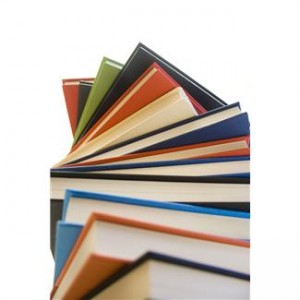 A Revolutionary Moment:
A Revolutionary Moment:
Women’s Liberation in the late 1960s and early 1970s
March 28-29, 2014 Boston University
Despite its immense achievements, the women’s liberation movement of the late 1960s and early 1970s has been minimally documented in print or on film. In recent years, however, celebrations of the movement’s accomplishments have proliferated and new films have revived interest in this revolutionary period. It seems timely therefore to bring together activists, scholars, artists, writers, and filmmakers to reflect on the movement: its accomplishments in so many domains, its unfinished business, and its relevance to contemporary work that is advancing women. The conference will engage with political, intellectual, artistic, literary, legal, and personal elements of the movement, and especially with the ways in which these elements intertwined and often reinforced each other. Films of and about the movement will be screened and a signature play of the period will be performed. Linda Gordon, University Professor of the Humanities and Florence Kelley Professor of History at New York University, will deliver the conference keynote address.
The organizers invite proposals for individual papers, pre-constituted panels, and non-traditional presentations. Applications from junior scholars and activists are particularly encouraged. Travel allowances will be available to bring to Boston those who could not otherwise participate.
Topics for conference presentations include but are not limited to the following:
• What groups and individuals created the women’s movement of the late 1960s and early 1970s? What were the contributions of radical, working class, rural, African American, and Latina women? Of lesbian and heterosexual women? Of men? At what moments did women work together across boundaries of class, ethnicity, generation, and sexuality and at what moments did they pursue their goals independently?
• What have been the impacts of the movement on the lives of women and men? On the arts and literary work? On political organizing? To what extent were intellectual disciplines transformed by feminist insights, and to what extent have these changes been sustained? How did developments in different disciplines affect and reinforce each other?
• What are the reigning narratives today about the women’s liberation movement, and to what extent do these narratives obscure or illuminate what has been important about the movement? How is the women’s movement of the late 1960s and early 1970s depicted in contemporary scholarly work? In popular culture? By different generations? Which elements of the movement and which movement figures have received the most attention, and which have been overlooked?
• How has more recent theorizing complicated our understandings of the women’s liberation movement and the goals for which it fought? What impact has gender theory, queer theory, and other post-structuralist theory had on the cause of women’s liberation?
• What of the tools and methods of the women’s liberation movement? Is there a role for consciousness-raising groups today?
Proposal deadline: July 1, 2013
For individual 15-minute presentations, please submit an abstract of 500 words. Include a 2-3 sentence biographical statement that includes your institutional or professional affiliation, if any, and your research/artistic/activist interests. For complete panels, please submit a 200-word proposal along with individual paper abstracts with biographical statements for each panelist.
We also welcome alternative presentations by activists, artists, and non-academics, including art installations, performances, workshops, film screenings, and more. Please submit a 500-word proposal providing an explanation of your presentation and a 5-sentence biographical sketch. Include a description of your space and A/V needs.
If you would be unable to travel to Boston without some assistance with travel costs, please note what a necessary travel award would be.
All materials should be sent to conference organizer Deborah Belle, Director of Boston University’s Women’s, Gender, & Sexuality Studies Program, at debbelle@bu.edu. Use “Women’s Liberation Movement Conference” as the subject line in your email. All submissions will be acknowledged by email. For more information, please contact wgs@bu.edu or debbelle@bu.edu.
Deborah Belle
Director of Boston University’s Women’s, Gender & Sexuality Studies Program
Email: debbelle@bu.edu
Rochelle Ruthchild invited me to participate in the film round table. I am the sriter/director of THE HERETICS, 1 HOUR 30 MIN, 2009.
I am also looking forward to attending a number of other sessions. The questions posed by the conference are central ones to the history of women and feminsm and, as it turns out, to my life.
Thanks for organizing it,
best,
Joan